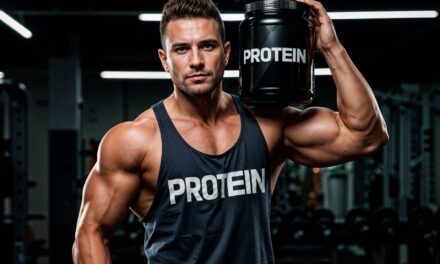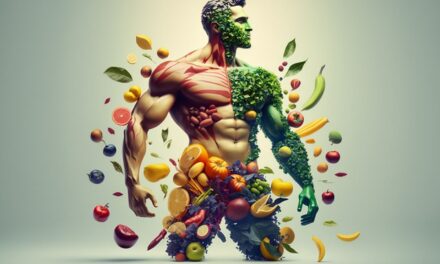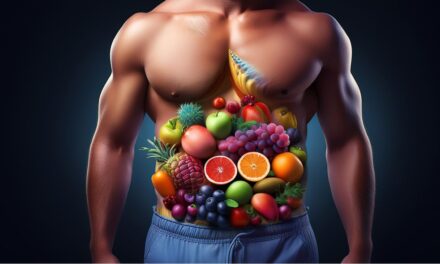- The Silent Testosterone Decline and the Role of Diet
Over the past 50 years, average testosterone levels in men have declined by about 1% per year—a staggering shift confirmed by blood studies . This isn’t merely about aging; it reflects environmental influences, stress, inactivity, and especially eating habits. Modern diets—heavy in ultra‑processed foods and low in healthy fats—actively suppress testosterone, while wisdom from ancestral eating patterns points to nutrient‑dense, hormone‑friendly food. If men aren’t even aware their core hormones are declining, are they truly living with vitality—or just drifting under society’s radar?
- Fat‑Rich Foods: Cholesterol, Healthy Fats, and Hormone Production
Testosterone is synthesized from cholesterol and requires adequate healthy fats. Meta‑analyses confirm that low‑fat diets significantly reduce total and free testosterone (standardised mean difference ≈ – 0.38) compared to high‑fat diets arxiv.org. Key foods:
- Fatty fish (salmon, sardines): omega‑3, vitamin D—linked to improved testosterone nejm.org+15pmc.ncbi.nlm.nih.gov+15healthline.com+15.
- Egg yolks: cholesterol, vitamin D, selenium—necessities for hormone synthesis.
- Avocados and olive oil: rich in monounsaturated fats, which support optimal hormone production examine.com+15healthline.com+15medicalnewstoday.com+15.
Diet isn’t just fuel—it’s the raw material for masculinity. If modern diets are hollowing out men hormonally, what is being sacrificed in their stead?
- The Macronutrient Equation: Beyond Fats
Beyond dietary fats, nutrient timing and eating patterns matter. Intermittent fasting and higher protein intake (e.g., from eggs or legumes) support testosterone in synergy with fats . Crucially, strength training amplifies this effect—protein and healthy fats alone aren’t enough without resistance exercise. Without pairing diet with physical activation, men risk thinking that supplements can substitute for real nutrition—and lose the biological edge in the process.
- Zinc and Magnesium: Underappreciated Micro‑Drivers
- Zinc: A powerful testosterone catalyst. Men deficient in zinc—common in those eating processed foods—risk hypogonadism. Zinc supplementation shows clear increases in testosterone.
- Magnesium: Found in leafy green vegetables and whole grains, magnesium supports testosterone and relaxation. Men low in magnesium are 18–20% more likely to have low testosterone.
Together, these nutrients ensure that production is supported from the inside out. If masculinity is biological function, why is micronutrient discipline seen merely as “health nuts”?
- Vitamin D and Sunlight: Hormone Theater with Vitamin A Star
Vitamin D—encoded with “D” for “dominance” in a man’s world—is both a vitamin and a steroid hormone precursor. Men with sufficient vitamin D have higher testosterone on average . Fatty fish, fortified dairy, egg yolks, and sun exposure are foundational for maintaining healthy levels. If society values mental strength and physical health, why aren’t men moving outside to let the sun do its restorative work?
- Plant‑Based Testosterone Allies
- Dark leafy greens (spinach, kale): offer magnesium and protect against aromatase (estrogen‑converting enzymes) eatingwell.com+2healthline.com+2miexpresscare.com+2.
- Berries, cherries, pomegranates: rich in antioxidants that shield Leydig cells from oxidative stress healthline.com+1health.com+1.
- Cocoa (dark chocolate): flavonoid‑rich and associated with hormone support .
These foods add metabolic resilience and hormonal balance—essential for men living against cultural currents that disdain masculinity’s warmth.
- Herbs and Supplements: Practical, Not Magical
Certain herbs offer natural hormone support:
- Fenugreek, ashwagandha, Tongkat ali: men involved in resistance training saw 5–20% testosterone increases eatingwell.com+2health.com+2verywellhealth.com+2.
- Coenzyme Q10, cordyceps, zinc‑mag combinations (e.g., ZMA): have animal and small human trial evidence of protection or slight boosts .
While not magic bullets, these are accessible additions—particularly for men seeking endocrine edge without pharmaceutical dependence.
- Foods to Avoid: Removing the Down‑Regulators
Honoring biology means eliminating what damages it:
- Licorice root: 26–35% testosterone reduction in men after one week eatingwell.com+5pubmed.ncbi.nlm.nih.gov+5healthline.com+5.
- Trans fats: associated with 15% lower testosterone levels in high consumers healthline.com+2eatingwell.com+2healthline.com+2.
- Heavy alcohol misuse: reduces testosterone by nearly 7% over weeks article.imrpress.com+9health.com+9healthline.com+9.
- Ultra‑processed carbs: elevate insulin, decrease testosterone, and mimic female hormonal states.
Removing these is the first step: you can’t build until you clear the field.
- Lifestyle Synergy: Nutrition + Sleep + Exercise + Stress
True testosterone optimization is holistic:
- Sleep: Less than 6 hours cuts testosterone by 10–30% pmc.ncbi.nlm.nih.gov+7eatingwell.com+7health.com+7.
- Strength training: country-level studies show immediate spikes and cumulative benefit.
- Stress control: chronic cortisol undermines the endocrine axis.
- Healthy body composition: excess fat increases aromatase, lowering testosterone.
It’s not just mental discipline—it’s total defense. Men who sleep well, sweat hard, and eat right don’t fear aging—they embrace it.
- Implementing a Male‑First Food Plan
A template diet to follow:
- Breakfast: eggs + spinach + avocado + olive oil.
- Lunch/Dinner: salmon, oysters, or lean meat + broccoli + sweet potato + olive oil.
- Snacks: nuts (pumpkin, almonds), berries.
- Include one serving of dark chocolate or cocoa.
- Weekly additions: cruciferous veggies; occasional shellfish; herbal supplement protocol.
Beyond macros, this is about bio‑alignment. A man’s diet isn’t optional—it’s the expression of his sovereignty.
Closing Reflection
Testosterone optimization isn’t a vanity project—it’s a return to aliveness for men. It ensures energy, drive, muscle, sexual potency, and mental clarity. In a world bent on anesthetizing men through carbs, screens, prescriptions, and shame, the simple act of eating for hormonal health is revolutionary. The question isn’t whether men could make these changes—it’s whether they will choose their chemistry over the cultural script.











